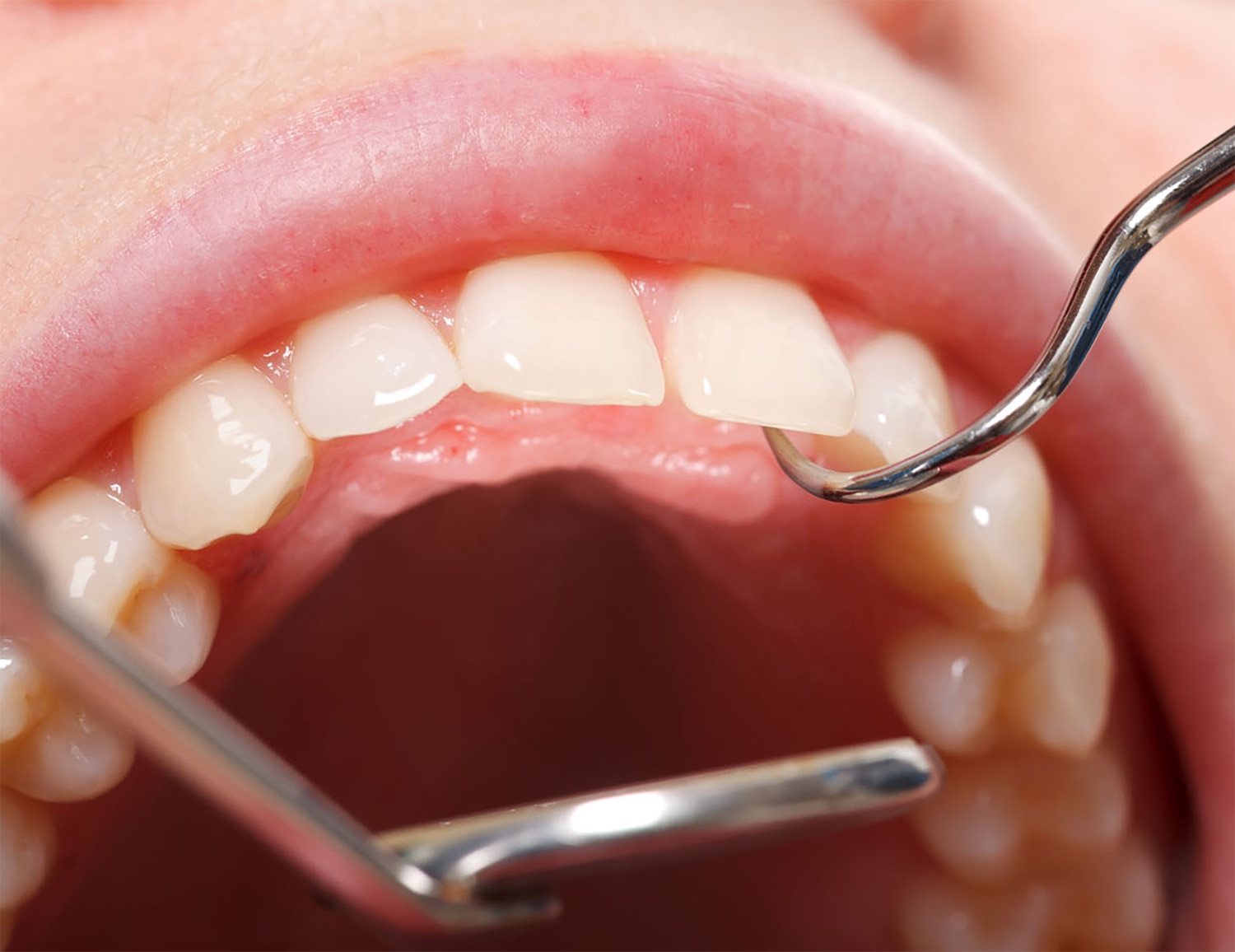ACUTE MYELOID LEUKEMIA (AML) patients who receive screening from dentists before starting intensive chemotherapy have a reduced risk of a serious dental emergency during treatment, according to a study published July 1, 2020, in JCO Oncology Practice.
“Chemotherapy can cause a lot of oral complications,” says Erin Watson, a dentist at Princess Margaret Cancer Centre in Toronto, who led the study. For instance, she says, it can cause dry mouth, putting patients at risk of infection or gum disease, and can upset the balance of the mouth’s microorganisms, leading to sores and a fungal overgrowth called oral thrush.
AML patients are at high risk from oral complications because of their cancer and the potent chemotherapy they receive, both of which weaken the immune system. For these patients, a dental infection “could be life-threatening,” Watson says.
Watson and her colleagues checked 147 newly diagnosed AML patients for oral swelling, abscessed teeth, gum disease and other dental problems and took care of any severe issues before chemotherapy. Afterward, Watson says, the dentists noticed they had “virtually eliminated” the dental emergencies that might have occurred in that group compared to a control group of 190 patients who did not receive dental screenings for various reasons. The patients who were not screened had eight infectious dental emergencies compared to just one in the screened group. The screened group also had a significantly lower rate of infectious dental emergencies than a second control group of 304 AML patients treated with chemotherapy before the study began who did not receive screening.
Watson says her group performed basic screenings on the AML patients due to their urgent need to start treatment. However, Mark Chambers, an oral oncologist at the University of Texas MD Anderson Cancer Center in Houston, generally does a full oral examination, takes X-rays and checks for salivary gland function and jaw range of motion for the cancer patients he sees. “Then we make a realistic treatment plan, knowing that we have minimal time to eradicate infection, get the patient to heal comfortably, then get them into treatment,” he says.
Outside of screening leukemia patients, Watson and Chambers perform exams on patients about to undergo stem cell transplants, which suppress the immune system, and patients with head and neck cancers. The latter typically receive radiation therapy, which can damage healthy cells in the jaw bones, weakening them so they fracture easily.
Because of that concern, dentists often extract teeth that appear to be at risk for infection before radiation therapy for head and neck cancers, says Nathaniel Treister, an oral medicine specialist at Dana-Farber/Brigham and Women’s Cancer Center in Boston. Treister’s group is helping conduct a study sponsored by the National Institutes of Health that is evaluating the best time to perform dental procedures on head and neck cancer patients. “The reality is that there is a major unmet need currently throughout the country” for dentists at cancer centers, Treister says.
Cancer Today magazine is free to cancer patients, survivors and caregivers who live in the U.S. Subscribe here to receive four issues per year.





